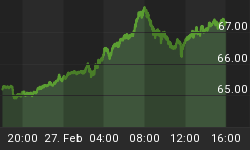China’s massive money-market fund that used to be called a “blood-sucking vampire” is about to lose its heavyweight title as the world’s largest after losing $120 billion in a bit more than a year, Bloomberg reported.
The fund’s rightful name is Yu’e Bao, and it is operated by an affiliate of Alibaba Group Holding Ltd., Ant Financial.
Boasting 1.3 trillion yuan (or USD$144 billion) in assets under management as of June doesn’t seem too shabby, but it’s a far cry from its peak of the USD$270 billion that were under management as of last March.
It has now slipped behind JPMorgan U.S. Government Money Market Fund, which currently has $150 billion in assets under management, and as it slips further toward $100 billion, it is well on its way to slip into the number 3 spot, behind Fidelity Government Cash Reserves fund, so says Bloomberg.
Yu’e Bao was on a tear due to China’s high interbank rates, but regulatory curbs sought to restrict its growth, and by March, it had sunk to USD$155 billion—an 8% drop from the prior quarter. At the time, analysts thought that the fund’s losses had slowed, and stabilization was thought to be on the horizon.
Yu’e Bao is not just one of the largest money market funds in the world. It is unique in that it is not managed by the traditional asset management giants in the US. It’s traded on the Alipay platform, which allows Alipay users to invest the money that they are not currently using—temporarily. Yu’e Bao is aptly named, meaning “leftover treasure”.
Some staggering statistics for the monstrosity of the fund is that, according to the Wall Street Journal, 588 million Alipay users invested in the fund as of the end of 2018—this means that one-third of China’s population was invested in the mega fund. At the height of its popularity in early 2018, users were seeing 6% in annual returns. Yu’e Bao earned total returns of 50.9 billion yuan in 2018. Related: The World’s Biggest IPO Is Almost Here
This huge success was perhaps too successful. Recognizing that the huge number of users posed risks, regulation concerns were raised. These caused Ant to implement some measures that have contributed to the fund’s shrinkage. First, Ant began to offer additional money market funds, which steered some users away from Yu’E Bao. Second, Ant dropped some of its harder to sell assets, which lowered its yield. The fund’s total assets under management fell 28% in 2018.
Yu’e Bao is still the third largest money market fund in the world, but its JPMorgan and Fidelity rivals are considered more liquid and less risky. According to Fitch, 87% of Yu’e Bao’s assets were negotiable time deposits in Chinese banks. JPMorgan, on the other hand, invests only in AAA-rated US Treasuries and government securities, or repos backed by those bonds, South China Morning Post reported at the end of 2017. Chinese domestic banks’ ratings are limited by the fact that China’s sovereign rating is just A+, which is a full four notches below the rating for US treasuries.
By Julianne Geiger for SafeHaven.com
More Top Reads From Safehaven.com:
















